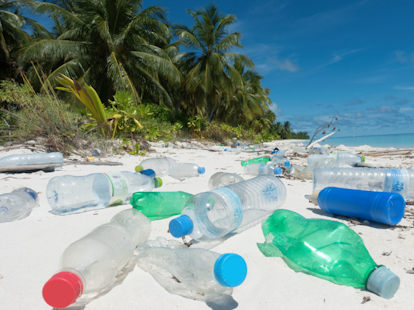In January 2020, the fashion world was shocked by Jean-Paul Gaultier’s announcement that his Paris Fashion Week show would be his last haute couture runway show.i He had previously attacked “ridiculous” levels of waste in the fashion industry in July 2019.ii The fashion world is changing to be more sustainable, but what does this mean for manufacturers and consumers?
The full cost is not just financial. Waste of this type is damaging to the environment, putting biodegradable and non-biodegradable chemical substances straight into the soil. This has led to calls from within the recycling industry for authorities to set out “ambitious” strategies for textile recycling.v
At the same time, by underutilizing clothes, we are not gaining maximum value for the resources that have been used – water, energy, chemicals, etc. – in their production.
Sustainable Options
Sustainability in fashion is typified by high quality products that will last longer. It utilizes high quality materials and responsible processes. In general, it also relies on fewer styles covering a variety of outfits that can be worn for multiple purposes.Simplicity in materials and processes means these garments are also often more easily recycled. Recycling is an important aspect of how the fashion industry looks to be moving forward – Jean-Paul Gaultier’s last catwalk show reused outfits and it is rumored this is his new direction.
Advantages
The benefits for the environment are clear – fewer clothes means less resources utilized during production and less waste generated during production and consumption. For consumers, higher quality clothes last longer, saving them time and money in shopping for clothes and caring for them.It can also make sound economic sense for manufacturers. By producing a reduced number of higher quality products, they can sell these products at a higher price with a larger margin. In addition, by increasing quality and decreasing quantity, the manufacturer may dramatically reduce incidental costs including shipping and warehouse.
The Key is Quality
For any products to succeed in the marketplace, it must conform to, or exceed, market regulations and consumer expectations. A focus on quality will not only please consumers, it will also enhance the reputations of the manufacturer and brand.Consumers want clothes that make them look great. They will only continue to wear garments if they conform to physical attributes such as strength, anti-pilling and abrasion resistance. A lifetime of wearing also means a lifetime of home laundering and so articles must also conform to expectations relating to color fastness, dimensional stability and surface fuzziness/cleanness. In addition, garment components, such as zips, buttons and snaps, must be durable.
Testing
Sustainable clothing is a growing market. A recent study found that 19% of the top fashion related online searches now incorporate terms such as environment, sustainability and ethics.vi If quality is the key to success in this market, then manufacturers need to ensure their garments not only comply with regulations but also conform to consumer expectations on quality.
SGS provides testing, inspection and auditing solutions to help manufacturers and brands ensure their products meet market regulations and exceed consumer expectations. With over 40 state-of-the-art specialist Softline laboratories operating around the world, we offer a comprehensive range of services, including:
- Chemical testing
- Material testing
- Colorfastness and shrinkage testing
- Physical and mechanical testing
- Flammability testing
Learn more about SGS Softline Services.
For more information, please contact:
Min Zhu, Ph.D.
Consumer and Retail Services
US & Canada Softlines, Technical Director
SGS North America, Inc.
t: +1 (973) 461 1230
REFERENCES:
i https://twitter.com/JPGaultier/status/1218207108312764421?s=20
ii Jean Paul Gaultier hits out at 'ridiculous' fashion waste
iii Valuing Our Clothes: the cost of UK fashion
iv A new textiles economy: redesigning fashion’s future
v Recycling action plan combats clothing disposal
vi Four factors fuelling the growth of fast fashion retailers



